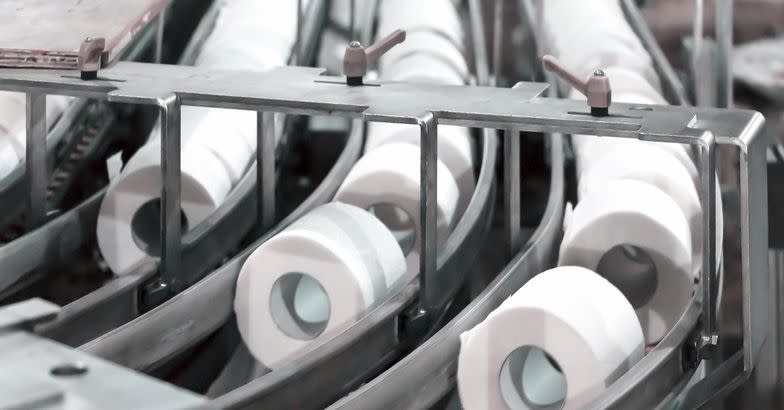15 industries that would benefit from a recession
Up in a Downturn
As the stock market tumbles, businesses halt operations, venues cancel events, and consumers tighten their belts on all spending that doesn’t involve hoarding toilet paper, it’s hard to go a day without hearing a news report about the coronavirus and a pending recession. While that would be bad news for most, some industries have built-in mechanisms that allow them to survive — and even thrive — when economic storm clouds gather. Whether it’s about finding businesses to invest in or industries it’s safe to work in, these are worth a look.

Health Care
Our current economic downturn is about a health emergency, but the health care industry doesn’t tend to rattled by any kind of downturn. “Given our aging population and the high cost of health care in general, this sector is typically resilient to recessions and may actually see rising sales and profits,” said Caleb Silver, editor-in-chief of Investopedia. “Pharmaceutical products and medical services are nondiscretionary for most people who rely on prescription drugs and medical care for their health.”
Related:15 Countries Where Americans Can Save Big on Medical Care

Consumer Staples
Unlike clothing, entertainment, and other discretionary purchases, consumer staples are basic needs essential for everyday use and tend to perform better as a sector during downturns. “These include household goods, food, beverages, hygiene products, and other items that individuals are either unwilling or unable to eliminate from their budgets — even in times of financial trouble,” Silver says.

Discount Retailers
When budgets are tight, people go to stores that help them stretch their dollars, even if they don’t tend to shop there during times of plenty, often for household necessities. “Discount retailers also tend to benefit during economic slowdowns, given their ability to offer most consumer staple products at low costs to entice bargain hunters,” Silver says.
Related:28 Surprisingly Good Costco, Walmart, and Target Products

RELATED: Take a look at some the simplest ways to lower your taxes:
Utilities
Just like consumer staples, people have to keep utilities such as electricity in their budgets, even during the leanest of times. But that’s not the only reason the sector tends to perform well in troubled times. “Utilities are generally considered defensive stocks given their necessity and their recurring revenue models,” Silver said. “While their growth is more muted than other sectors of the market, they are slow and steady earners no matter the economic environment. They also offer relatively high dividends to investors looking for yield in good times and bad.”
Related:Which States Pay the Most for Electricity?

Service and Repair Companies
Many service-based industries suffer during downturns, Silver’s Investopedia points out, including restaurants and maid services, because people tend to cut those luxuries out fairly early during a belt-tightening. Others, however, wind up doing better when the economy is down. They include service and repair companies, because budget-minded households and businesses will pay to fix the things they can instead of spending more to buy a new one.
Related:DIY Disasters: 20 Repairs to Leave to the Pros

Sin Industries
So-called sin industries tend to thrive in recessions, Investopedia reports, because down-and-out consumers will spend a little more money to dull the pain of not having a lot of money to buy things they really want. This includes cigarettes, booze, and even chocolate. (Oddly, gambling tends to decline during recessions.)
Related:Renounce and Save: How Much You Save Giving Up These 20 Things

